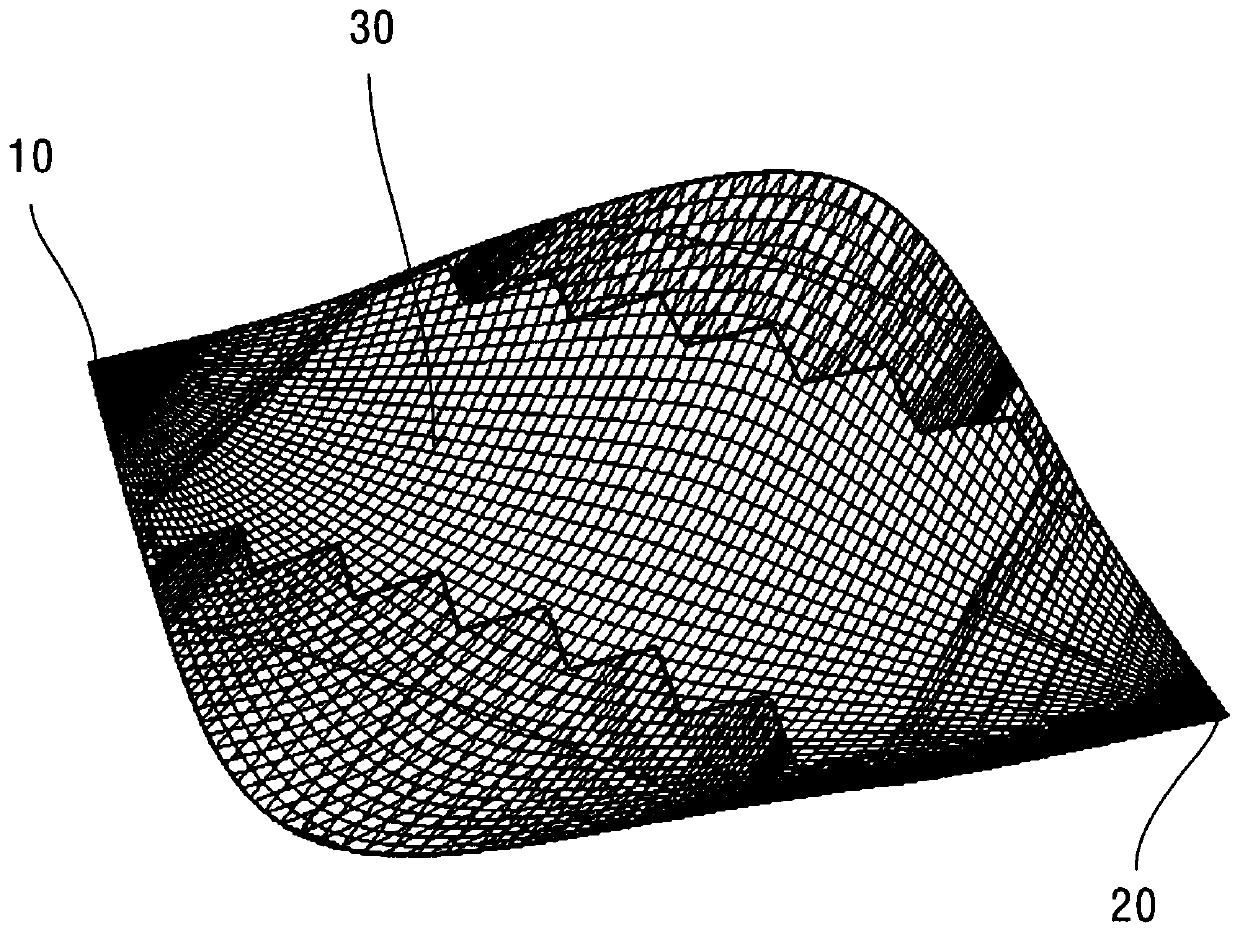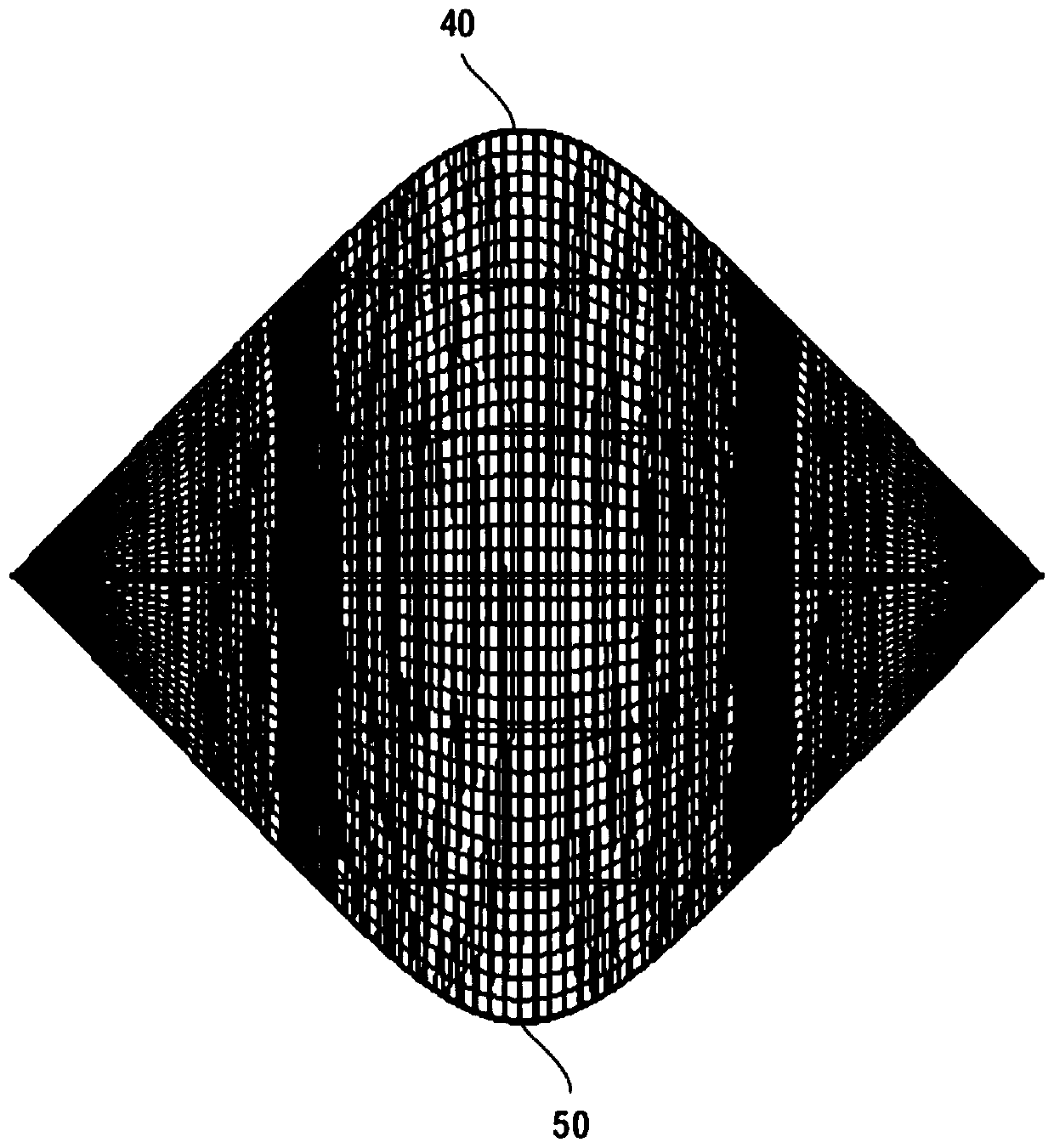A carrier for testing the lateral radar cross section of the antenna
A radar scattering and cross-sectional area technology, which is applied in the field of communication, can solve problems such as the inability to measure the antenna scattering cross-sectional area, and achieve the effect of small equivalent signal receiving area and reduced interference
- Summary
- Abstract
- Description
- Claims
- Application Information
AI Technical Summary
Problems solved by technology
Method used
Image
Examples
Embodiment 1
[0051] Such as figure 1 As shown, an embodiment of the present invention provides a carrier for testing the lateral radar cross-sectional area of the antenna, and the shape of the carrier is a shuttle-like structure with sharp corners at the left end 10 and right end 20;
[0052] The top of the carrier is provided with an antenna installation groove 30, and the distance between the installation groove 30 and the left end 10 and the right end 20 is equal;
[0053] The antenna under test can be installed in the installation slot 30 , and the left side of the antenna under test is opposite to the left end 10 , and the right side of the antenna under test is opposite to the right end 20 .
[0054]When in use, the antenna to be tested can be installed in the mounting groove of the carrier so that the left side of the antenna to be tested is opposite to the left end of the carrier, and the right side of the antenna to be tested is opposite to the right end. The antenna installed ...
Embodiment 2
[0056] Such as figure 2 As shown, the second embodiment is basically the same as the first embodiment, and the similarities will not be repeated. The difference lies in:
[0057] The bottom view of the carrier is rhombus-like;
[0058] Both the upper corner 40 and the lower corner 50 of the rhombus are rounded.
[0059] In the second embodiment, the shape of the carrier is a shuttle-like structure with sharp corners at the left end and the right end, and the bottom view of the carrier is a rhombus-like shape, and the upper and lower corners of the rhombus-like shape are rounded, so when When the test signal is sent from the left or right side of the carrier to the antenna under test, the equivalent signal receiving area of the carrier relative to the test signal is relatively small, further reducing the interference caused by the scattering field of the carrier itself to the scattering field of the antenna under test.
Embodiment 3
[0061] The third embodiment is basically the same as the second embodiment, and the similarities will not be repeated. The difference is that the carrier has a symmetrical structure with a designated dividing plane, wherein the designated dividing plane is perpendicular to the left end 10 and the The connecting line between the right end portions 20, and the center of the carrier is located on the dividing plane. In this way, it can be ensured that no matter whether the test signal is sent from the left side or the right side of the carrier to the antenna mounted on the carrier to test the lateral radar cross-sectional area of the antenna to be tested, the test effect and test result are the same.
PUM
 Login to View More
Login to View More Abstract
Description
Claims
Application Information
 Login to View More
Login to View More - R&D
- Intellectual Property
- Life Sciences
- Materials
- Tech Scout
- Unparalleled Data Quality
- Higher Quality Content
- 60% Fewer Hallucinations
Browse by: Latest US Patents, China's latest patents, Technical Efficacy Thesaurus, Application Domain, Technology Topic, Popular Technical Reports.
© 2025 PatSnap. All rights reserved.Legal|Privacy policy|Modern Slavery Act Transparency Statement|Sitemap|About US| Contact US: help@patsnap.com



